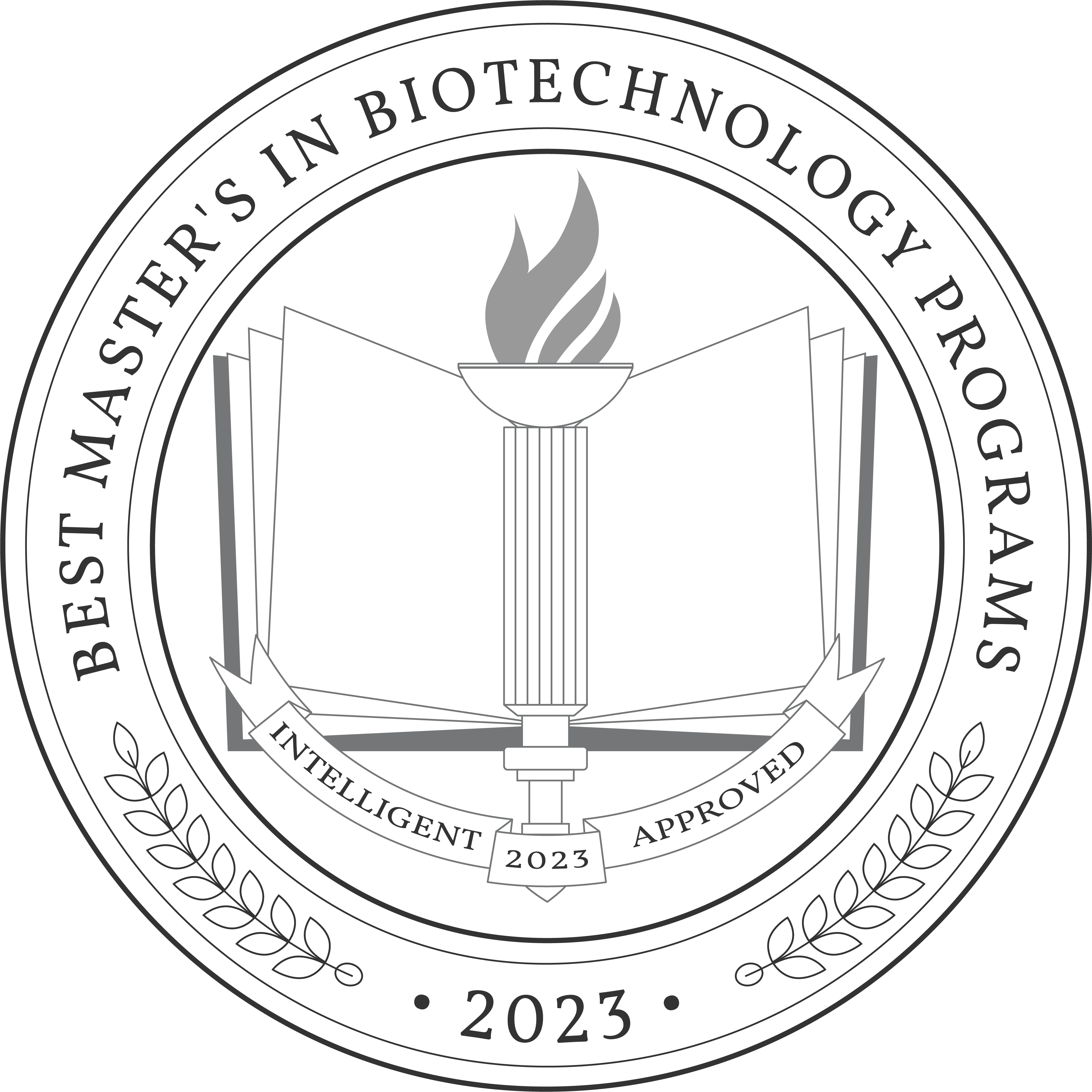Why This Matters
-
CHOOSE FROM SEVERAL CAREER PATHS WITH A MASTER’S IN BIOTECHNOLOGY
A master’s degree can position you for numerous careers in biotechnology, including agricultural engineer, biochemist, biomedical engineer, biotechnology technician, bioproduction operator, and more.
-
BIOTECHNOLOGY OFFERS STRONG PAY AND A STABLE JOB OUTLOOK
Many careers in biotechnology are projected to grow faster than the average for all occupations, and salaries are typically high. For instance, the median wage for biomedical engineers is $91,410 per year.
-
WORK IN BROAD RANGE OF SETTINGS
Biotechnologists often work in hospitals, manufacturing, research facilities, universities, medical institutions, pharmaceutical companies, and more. A master’s degree may also enable you to teach in an educational institution.
Our Research
This list focuses on graduate programs in biotechnology that award master’s degrees. The most common degree awarded by graduate programs in biotechnology is a Master of Science degree. Some programs award a Master in Biotechnology. We reviewed programs that are offered online, in-person, and blended formats.
This list includes programs offered by regionally accredited schools, including the seven regional accrediting agencies for educational institutions that operate in the U.S. Accreditation means the institution is regularly assessed by an independent agency on the quality of the education it provides. Regional accreditation is more rigorous than national accreditation, and credits and degrees from regionally accredited schools are typically transferable to other institutions.
We evaluated each program on the basis of flexibility, faculty, course strength, cost, and reputation. Then we calculated the Intelligent Score for each program on a scale from 0 to 100. For a more extensive explanation, check out Our Ranking Methodology.
- 65 hours to write this article
- 75 universities and colleges we assessed
- 139 education programs we compared
The Top 31 Master’s in Biotechnology Degree Programs

Discover More Options
What You Should Know About This Degree
When considering this career path, it’s important to understand the difference between biology, biotechnology, and the life sciences in general. The life sciences comprise any area of science, such as anatomy, biology, botany, and ecology, that involves the study of living organisms. Biology also involves the study of living organisms, with a focus on their structure, function, development, and evolution.
Biotechnology is a broad area of biology that combines the study of living organisms with technology. It is the use of a living organism, or a component of a living organism, to develop a product or process for a specific purpose. Biotechnology has several applications, from the production of everyday products to the development of new medical treatments, with the ultimate goal of improving people’s lives.
Professional credentials are not currently mandatory for jobs in biotechnology; however, careers in biotechnology typically require a bachelor’s degree, and many employers seek job candidates with master’s degrees. A master’s degree in biotechnology may qualify you for more specialized positions in the field. It can also be used as a springboard to a doctoral degree in biotechnology.
What’s Next?
Here are some questions to ask when researching biotechnology master’s degree programs:
- Am I eligible for this program? Many biotechnology master’s degree programs accept students from all educational backgrounds; however, most require students to have completed undergraduate coursework in related studies such as biology, calculus, chemistry, and organic chemistry or biochemistry. Check the program’s admissions requirements before applying to confirm that you meet their qualifications.
- How long does it take to complete this online degree? The amount of time required to earn a master’s degree varies by program. Most programs are completed within one to two years, with students completing an average of 30-36 credits.
As you research programs, you should take note of application deadlines for each program and keep track of what application materials you will need to submit. You can usually find specific information about the graduate application process on the school’s website or by contacting the admissions department.
Another important consideration is financing your education. Tuition and fees vary by program, but common funding opportunities include scholarships, loans, and grants. If you’re currently employed, ask your employer about tuition reimbursement.